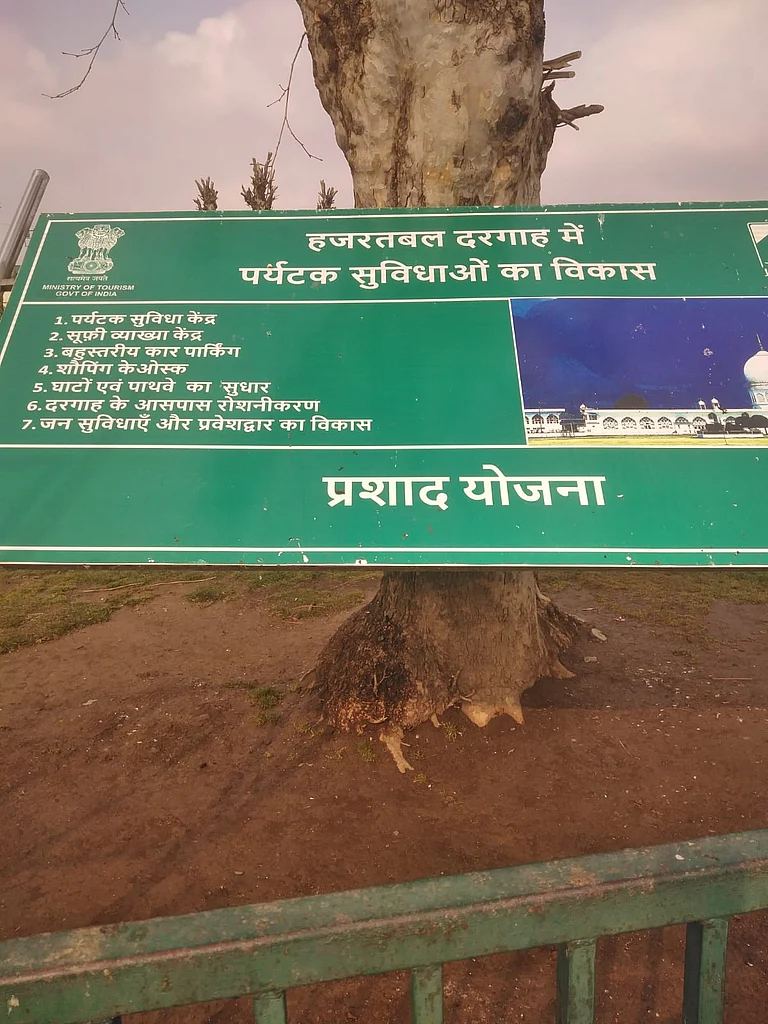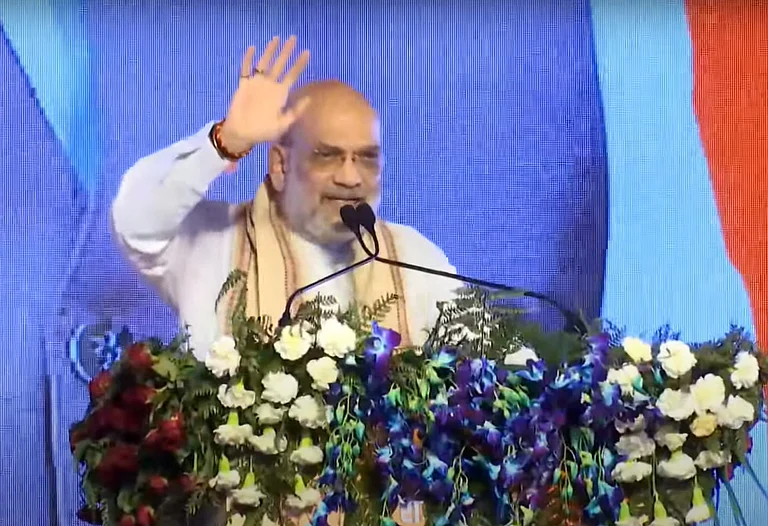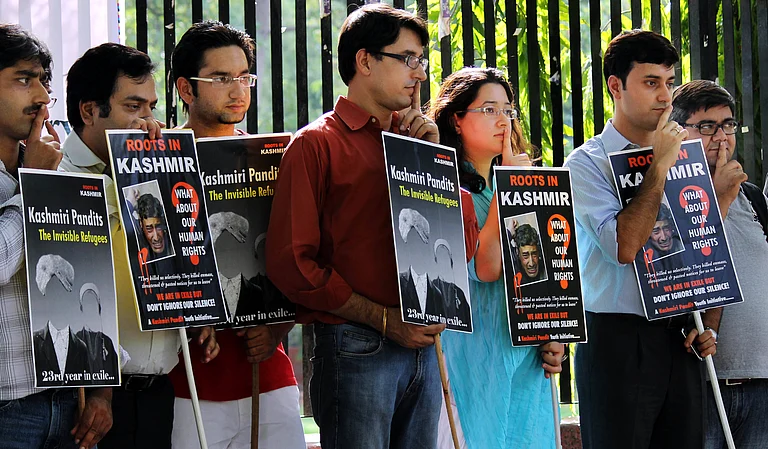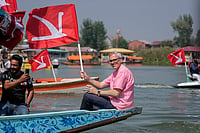The recent filming of a TV serial inside the legislative assembly of Jammu and Kashmir has sparked controversy, drawing objection from the former chief minister. These spaces are typically reserved for serious political discussions and decision-making and using them for entertainment purposes is perceived as trivializing the democratic process.
This episode not only raises concerns about the respect for the highest decision-making body but also highlights the challenges and vulnerabilities that arise in the absence of an elected government, emphasizing the importance of restoring democratic processes for effective governance and institutional integrity.
The delay in elections for J&K is a form of collective punishment as it withholds the democratic process, affecting the entire population by limiting their ability to participate in shaping their political representation and decision-making. As India gears up for another mega electoral contest, Can Kashmiris ask a simple question "Why are elections being delayed in Jammu and Kashmir?".
Jammu and Kashmir has been without an elected government since 2018 when the BJP pulled out of the coalition government with Mehbooba Mufti-headed Peoples Democratic Party (PDP). The last assembly elections in J&K were held in 2014 when the PDP emerged as the single largest party and the late Mufti Mohammad Sayeed, the PDP founder, cobbled up an alliance with the BJP despite public and party resentment.
The governance deficit is further exacerbated by the expiration of the term of rural local self-government, Panchayats in popular usage, which have been functioning as the last remaining institutions of democracy in J&K. The prolonged absence of an elected government in J&K poses significant challenges to the region's political stability.
This situation has far-reaching consequences for governance, representation, and the aspirations of the people. The absence of an elected government hampers the democratic process and denies residents the opportunity to choose their representatives. This undermines the core principles of democracy, eroding public trust in the political system.
The delay may be a means for BJP to exercise control over the political narrative and outcomes in J&K, but it can potentially impact the political environment in the region because every new act or law by the central government is perceived as an intrusion into the already fragile political sphere of the restive region and an assault on the dignity of the people.
In the absence of an elected government, especially when the administration is run by a bureaucratic system, people often perceive the development narrative through a nuanced lens. The diverse socio-political landscape of J&K poses challenges for the bureaucratic administration in understanding and implementing policies that cater to the nuanced needs of different communities.
This has led to perceived gaps in policy execution and targeted development initiatives. The legitimacy of decisions made by bureaucratic administrators without a democratic mandate may not be questioned, because that can invite perturbation, but there is no legitimate acceptability of those decisions. This aspect becomes crucial in determining public trust in the fairness and inclusivity of decisions related to governance and development.
By witnessing a decline in the quality of governance, the erosion of institutions, and a weakening of the state's ability to fulfil its responsibilities, it is safe to declare that there's a political decay in J&K. Issues such as a political vacuum, periodic changes in administrative status, and challenges in representation have created an atmosphere of uncertainty. This decay is further exacerbated by factors like security concerns, historical grievances, and the potential impact on economic development.
BJP had strategically marketed a big lie that the abolition of Article 370 and 35A of the constitution and the scrapping of statehood for J&K was intended to help the fight against terrorism, promote economic development and make the people of the erstwhile state true Indians. Six years on, J&K finds itself grappling with a challenging landscape where its economy is in recession, and its political sphere in disarray. The region now faces the harsh realities of the economic downturn, impacting the livelihoods of its people.
Jammu and Kashmir is certain to encounter the same situation as Manipur. The widespread violence and civil unrest in Manipur have been attributed, in part, to perceived negligence by the Indian Union in initiating a robust democratic process. A lack of inclusive political engagement and failure to address local grievances contributed to the escalation of conflict. In the context of J&K, delaying or mishandling democratic processes could lead to similar consequences. Does J&K possess the resilience to withstand another cycle of violence, considering the historical implications and impact on its communities?
The inability to address the aspirations and concerns of diverse communities in the region may foster resentment, potentially resulting in violence and civil unrest. A transparent and inclusive democratic approach is crucial to mitigating the risk of such situations and ensuring political stability in sensitive regions.
Jammu and Kashmir is not an Orwellian state that should be administered by a despised bureaucracy, not aligning with the preferences or expectations of the people in J&K. The bureaucracy in the restive region should refrain from positioning itself as the exclusive raison d'être of governance, should avoid the role of a vanguard party and instead promote a more inclusive and participatory approach to address the diverse needs of the region.
Urgent steps are required to restore democratic processes, strengthen local governance, and address the unique concerns of the people to foster a more stable and inclusive political environment. Elections are crucial in restoring the democratic process in the region as they provide a legitimate and inclusive mechanism for governance, representation, conflict resolution, and development. The act of voting becomes a cornerstone for rebuilding democratic institutions and fostering stability in the region. Elections can be a mechanism for addressing political grievances and fostering reconciliation.
In Jammu and Kashmir, where historical tensions exist, a fair and inclusive electoral process provides an opportunity for peaceful resolution and the integration of diverse communities into the political mainstream.
(The author is a Researcher and a Literary Critic.)


























